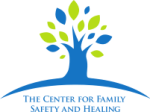Child Abuse Prevention
The Center for Family Safety and Healing is a leader in the prevention of child abuse to support the well-being of families and create safe and thriving communities.
Every child deserves the right to grow up in a safe and healthy environment.
Featured
Creating Healthy Digital Boundaries
Do your kids understand how far is too far online? Below we offer tips for setting healthy digital boundaries with kids and teens.
- 700 Children’s – Healthy Digital Boundaries for Kids Blog
- 700 Children’s – Healthy Digital Boundaries for Teens Blog
- For Kids (Click to view handout)
- For Teens (Click to view handout)
- For Caregivers (Click to view handout)
Practicing Positive Discipline
Discipline teaches children what is and what is not okay. Below we offer safe and effective strategies for supporting positive behaviors.
- Blog: Practicing Positive Discipline
- Hitting Harms, Hugging Helps – Discipline That Works
- Parent and Caregiver Tip Sheets – View our collection of useful tips for caregivers about how to address and better understand your child’s behavior
Free Virtual Learning
Triple P Online (Positive Parenting Program)
Free online, self-paced parenting courses to help parents of children, pre-teens and teens address behaviors, promote new skills and help their children with emotional self-regulation. Click here to learn more.
Additional Prevention Resources
- How to Calm a Fussy Baby
- Setting Boundaries Between Kids and Adults: How Close Is Too Close?
- Starting a Conversation With Your Kids About Sexual Abuse
- Starting the Conversation About Big Feelings
- The “What If” Game: Gaining Insight Into How Your Child Thinks
- Preventing Child Abuse in Your Community: How You Can Help
Hear from Our Experts in Recent Media Interviews
- La Grande interview with Abigail Branco, Bilingual Community-based Clinician with the Family Support Program for Child Abuse Prevention Month – La Grande, April 8, 2023
- Urban One interview with Diane Lampkins, Training and Prevention Coordinator, and Daneisha Washington, Clinical Manager for the Family Support Program, for Child Abuse Prevention Month – Urban One, April 4, 2023
- What Matters with Mindy and Mikaela interview with Diane Lampkins, Training and Prevention Coordinator, for Child Abuse Prevention Month – iHeart Radio, April 2, 2023
Recognizing the Signs
Get Help
Did you know? Anyone can contact a child protective services agency and make a report about child abuse or neglect – and it can be completely anonymous.
Franklin County Children Services Child Abuse Hotline
614-229-7000 24/7 hotline
Public Children Services Association of Ohio
Child Protective Agencies Directory by County
855-642-4453 (24/7 Ohio reporting line)
National Child Abuse Hotline
800-4-A-CHILD (800-422-4453) 24/7 hotline
The Center for Family Safety and Healing Child Assessment Center
614-722-8200 (8 a.m. – 5 p.m. M-F)
If you need immediate medical attention, please go to the Emergency Department at Nationwide Children’s Hospital

